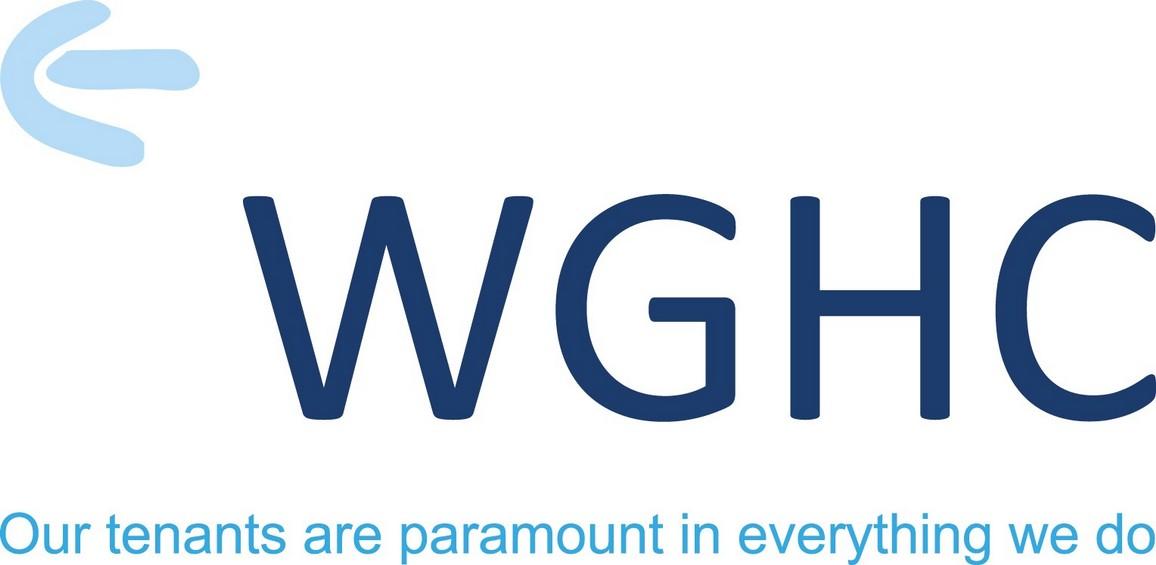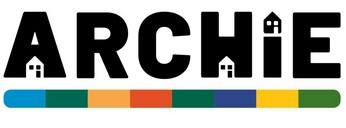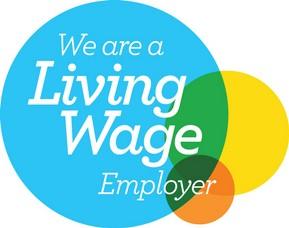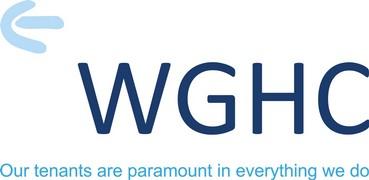

ENVIRONMENTAL INFORMATION (SCOTLAND) REGULATIONS 2004 POLICY
This policy was approved by the Committee of Management on Wednesday 16th July 2025. It should be reviewed again no later than 30th June 2028, or sooner if legislation changes. The policy has been assessed through the organisational impact assessment process. We can, if requested, produce this document in different formats such as larger print or audioformat. We can also translate the document into various languages, as appropriate.
SCOTTISH
HOUSING
STANDARD 1
The governing body leads and directs the RSL to achieve REGULATOR good outcomes for its tenants and other service users. STANDARDS
STANDARD 2
The RSL is open about and accountable for what it does. It understands and takes account of the needs and priorities of Its tenants, service users and stakeholders. Its primary focus is the sustainable achievement of these priorities.
STANDARD 3
The RSL manages its resources to ensure its financial well-being, while maintaining rents at a level that tenants can afford to pay.
STANDARD 4
The Governing body bases its decisions on good quality information Information and advice and identifies and mitigates risks to the organisation’s purpose.
STANDARD 5
The RSL conducts its affairs with honesty and integrity.
STANDARD 6
The Governing body and senior officers have the skills and knowledge they need to be effective.




1.0 INTRODUCTION
WEST GRANTON HOUSING CO-OPERATIVE (WGHC) is committed to openness and transparency. We will comply with the provisions of the Environmental Information Regulations (Scotland) Act 2004 and related legislation, including the Freedom of Information (Scotland) Act 2002 (FOISA), the General Data Protection Regulation (UK GDPR) and the Data Protection Act 2018.
1.1 Scope
The Environmental Information Regulations 2004 (EIR) came into force on 1 January 2005, to fulfil the UK’s legal obligations under European environmental directive 2003/4/EC. The Information Commissioner’s Office regulates the EIR in the UK.
A direct link to the Regulations is here: https://www.legislation.gov.uk/uksi/2004/3391/contents
The EIR provides a right of access to environmental information held by WGHC. The regulation also sets out exceptions from the obligations to release information.
Environmental information is sometimes available under other legislation or by public registers created as a result of other legislation.
2.1 Definition of Environmental Information
A broad definition is applied in the regulations as to what may be considered environmental information. This includes any information in written, visual, electronic or any other material form on:
The state of the elements of the environment - such as air, water, soil, land.
Substances - Energy, noise, radiation or waste, emissions, discharges and other releases into the environment affecting or likely to affect the state of any of the elements of the environment outlined above.
Measures – Including administrative measures such as policies, legislation, plans, programmes, environmental agreements, and any activities affecting or likely to affect the state of any of the elements outlined above.
Reports – Cost-benefit and other economic analyses used in these policies, plans, programmes, agreements and other activities.
The state of human health and safety, contamination of the food chain and cultural sites and built structures.
West Granton Housing Co-operative is required under the Freedom of Information (Scotland) Act to produce and maintain a Guide to Information (a guide to the information we hold which is publicly available). Generally, requests for information need to be responded to within 20 working days, with an extension permitted of up to 40 working days for complex or voluminous request. Compliance requires good records management to know if the information exists and to be able to locate it promptly.
Document Name:

3.0 RESPONSIBILITIES
All staff are responsible for ensuring that Environment Information requests they receive are dealt with in accordance with the EIRs and in compliance with this policy. Staff should forward all initial requests for information received by West Granton Housing Co-operative to the COO. All requests must be dealt with promptly and in line with this policy.
4.0 PUBLICATION SCHEME
West Granton Housing Co-operative has adopted the Scottish Information Commissioner’s Model Publication Scheme.
The Scheme sets out what information West Granton Housing Co-operative will make available, classified by type of information, and how this information can be accessed. It also details how much it will cost if there are any associated charges. The Scheme can be accessed using the following link to our website: https://www.westgrantonhousing.coop/freedom-of-information/
5.0 REQUESTS FOR INFORMATION
Members of the public are entitled to request information from West Granton Housing Cooperative. Requests should be made to: The COO, West Granton Housing Co-operative, 26 Granton Mill Crescent, Edinburgh, EH48 4NF or by email to mail@westgrantonhc.co.uk Requests can also be made verbally.
All recorded information held by West Granton Housing Co-operative falling within the functions set out in ‘Scope’ above, is subject to the requirements of the EIRs. The type of information which may be requested can be paper or electronic.
Where a valid request is received, there is a duty on West Granton Housing Co-operative to confirm or deny whether it holds the information and if it does hold it, to provide the information so long as an exception does not apply.
If information has been requested but is not held, West Granton Housing Co-operative will inform the applicant of this. In exceptional cases West Granton Housing Co-operative may not be able to either confirm or deny if the information requested is held, for example where the request is for personal information of a person other than the requester.
If a request is unclear, West Granton Housing Co-operative will ask for clarification as soon as possible to enable us to proceed with considering the request. West Granton Housing Cooperative will provide advice and assistance to help people make requests under the EIRs.
West Granton Housing Co-operative aims to respond to all requests promptly and in any event within 20 working days following receipt of a valid request. The applicant will be informed if it is not possible to comply with this timescale and will be given an indication of when the response is likely to be provided.

6.0 CHARGES FOR INFORMATION
The EIRs allow public authorities to charge for making environmental information available, but any charge must be reasonable. The ICO states that any charges should be compatible with encouraging transparency and should not be an obstacle to such access.
In general, a reasonable charge may include the disbursements costs in transferring the information to the applicant and the staff time taken to locate the information.
This policy sets out how West Granton Housing Co-operative should comply with the charging regime laid out in Regulation 8 of the EIRs and, in particular, what constitutes a “reasonable amount”. More detail is provided in our Guide to Information.
As a general rule the charges should not exceed the actual costs of producing the material in question: the purpose of charging is to recover the costs incurred in complying with requests and managing demand.
In respect of any request for information West Granton Housing Co-operative reserves the right to:
Refuse requests on the basis that they are manifestly unreasonable, subject to a public interest test. Under the Environmental Information Regulations there is no ‘cost limit’ for dealing with requests, but requests that cost a disproportionate amount can be refused under regulation 12 (4) (b);
Refuse requests for copies of information where it is shown that EIR Regulation 5 or 6(1) (b) has been complied with and the information is already accessible either for inspection, at a public library or published on a website, or other public resource.
6.1 Schedule of Charges
There are two broad types of costs for which a public authority can charge:
The cost of staff time, including overhead costs, incurred when preparing information to be supplied in response to a specific request. This includes time spent locating, retrieving and extracting the information and putting it into the required format.
The costs incurred when printing or copying the requested information and sending it to the applicant.
7.0 STATISTICS
West Granton Housing Co-operative must submit statistical reports to the Scottish Information Commissioner on a quarterly basis. The reports include the numbers of requests received under EIRs, FOISA and DPA legislation, whether any exemptions or exceptions were used and whether any reviews were carried out.

8.0 EXCEPTIONS
The EIRs do not entitle applicants to be given all information held by West Granton Housing Co-operative. The EIRs sets out exceptions from the right of access to information.
Although there might be occasions when it is appropriate to rely on an exception, provision of information is an integral part of West Granton Housing Co-operative’s work. Therefore, we aim to disclose as much information as possible and rely on exceptions only in limited circumstances.
Where a request is refused, a refusal notice must be issued setting out the section of EIRs being relied upon and in most instances explaining the reasons for the refusal, including the details of any public interest and prejudice tests that have been applied. The refusal notice will also outline the review procedure with relevant details and inform the requester of their right to complain to the Information Commissioner.
8.1 Vexatious requests
While we are committed to providing information, we sometimes receive requests which can be deemed ‘vexatious’.
In determining whether a request may be vexatious we will consider whether meeting the request is likely to cause a disproportionate or unjustifiable level of distress, disruption or irritation. Where we believe the request to be vexatious, we will issue a refusal notice unless we have already done so in response to an earlier vexatious or repeated request from the same individual, and it would be unreasonable to issue another one.
8.2 Repeated requests
West Granton Housing Co-operative can refuse requests if they are repeated within a reasonable timescale from the previous request, whether or not they are also vexatious.
8.3 Exceptions under EIRs
EIR provides clear guidelines for West Granton Housing Co-operative with regard to where exceptions may apply to the Co-operative’s duty to provide access to environmental information. We may not progress a request made for environmental information if the requests meets any of the following criteria:
8.4 Information is Not Held – Regulation 10(4)(a)
If we do not hold the environmental information then it is not covered by EIR. If the information is not held then it should not be created in order to fulfil a request for information. Advice and assistance should be given to the individual making the request if an organisation is known who may hold the information requested. The contact details of that organisation should be provided to the individual.

8.5 The Request is Manifestly Unreasonable – Regulation 10(4)(b)
Environmental information is exempt if fulfilling the request would place a substantial burden on the Co-operative by providing the information. The fact that a request is detailed, complex or contains a volume of work which may tie up resources does not in itself make the request manifestly unreasonable. Reference should be made to the costs that may be charged in providing information and careful consideration must be applied before a request is refused under these criteria.
8.6 The Request is Too General or Otherwise Unclear – Regulation 10(4)(c)
If the request for environmental information is considered too general or unclear to progress further clarification should be sought from the individual who has made the request (see section 3). If the request remains too general or unclear following receipt of further clarification then we may refuse the request citing regulation 10(4)(C).
8.7 Information is in the Course of Completion, Unfinished Documents or Incomplete Data –Regulation 10(4)(d)
A request for information can be subject to an exception if we are currently working on a document and the document can be expected to have more work carried out in relation to it within a reasonable timeframe. A document which is in draft format or status is not automatically subject to the terms for exception. The regulation refers to documents that are actively being worked on. If this exception is applied, then we must inform an individual making a request of the timescale when it reasonably expects the information or document to be completed to allow the individual to make a request for the information in the future.
8.8 Internal communications – Regulation 10(4)(e)
Internal communications can be exempt under EIR. The definition applied to internal communications includes internal email exchanges, draft letters to an external organisation and a file note prepared for internal use. Any communication between two or more staff members is considered internal communication. It is also possible for communications between West Granton Housing Co-operative and a third party to be considered internal communication however the onus is on us in this situation to demonstrate that aspects of the administrative or legal relationship with the third party show why communication should be considered internal.
8.9 International relations, defence, national security or public safety – Regulation 10(5)(a)
Disclosure of environmental information is exempt where disclosure would substantially prejudice international relations, defence, national security or public safety.
8.10 The course of justice – Regulation 10(5)(b)
Environmental information is exempt from disclosure where disclosure would substantially prejudice the course of justice including law enforcement; impair the ability of an individual to receive a fair trial or the ability of a public body to conduct an inquiry of a criminal or disciplinary nature.

8.11 Intellectual Property rights – Regulation 10(5)(c)
Environmental information is exempt from disclosure where disclosure would substantially prejudice intellectual property rights including registered rights such as patents, trademarks and designs and unregistered rights such as copyright and design rights.
8.12 Confidentiality of the proceedings of the Co-operative where such confidentiality is provided for in law – Regulation 10(5)(d)
Environmental information is exempt from disclosure where disclosure would substantially prejudice the confidentiality of the proceedings.
8.13 Confidentiality of commercial or industrial information – Regulation 10(5)(e)
Environmental information is exempt from disclosure where disclosure would substantially prejudice the confidentiality of commercial or industrial information where such confidentiality is provided for by law to protect a legitimate economic interest.
8.14 Interests of the individual providing the information – Regulation 10(5)(f)
Environmental information is exempt from disclosure where disclosure would substantially prejudice the interests of the person who provided the information where it was supplied to the Co-operative on a voluntary basis and where the person supplying the information had no expectation that the information would be disclosed to a third party and has not consented to disclosure.
8.15 Protection of the environment – Regulation 10(5)(g)
Environmental information is exempt where disclosure would substantially prejudice the protection of the environment.
8.16 Personal data – Regulation 11
Environmental information is exempt to the extent that it includes personal data.
Where the Co-operative decide not to disclose information to an individual making a request under EIR, one or more of the criteria listed above must be quoted in correspondence issued to the individual giving reasons why the information they have requested has not been disclosed. Use of any of the exceptions outlined above must be applied as restrictively as possible, and a presumption in favour of the release of information must always be adopted.

10.0 COMPLAINTS
Anyone who has made a request for information to West Granton Housing Co-operative under the EIRs is entitled to request an internal review if they are unhappy with the way their request has been handled.
Internal reviews will be carried out by the CEO who was not involved with the original decision. A request for review may be about:
a decision not to give them some or all of the information
how an exception has been applied
how the request was handled (e.g. failing to reply to them within the time limit allowed)
a complaint about our Publication Scheme,
failing to give them advice about, and help with, making their request
asking them to pay a fee that they might feel is unreasonable
West Granton Housing Co-operative may ask the applicant for clarification of the grounds of their complaint if the grounds are not clear.
A request for an internal review should be sent to:
Larke Adger, CEO
West Granton Housing Co-operative Ltd
26 Granton Mill Crescent
Edinburgh
EH4 4UT
An internal review will consider whether or not the request was handled appropriately, in line with the requirements of the EIRs. Applicants wishing to ask for an internal review must do so within 40 working days of the date of West Granton Housing Co-operative’s final response to their request.
West Granton Housing Co-operative will acknowledge the request and aims to respond within 20 working days of receipt. In a small number of cases, the response may take longer. In these circumstances, West Granton Housing Co-operative will notify the requester, explain why more time is needed and give an estimate of the completion date.
Anyone who is unhappy with the outcome of an internal review is entitled to complain to the Scottish Information Commissioner. Document
